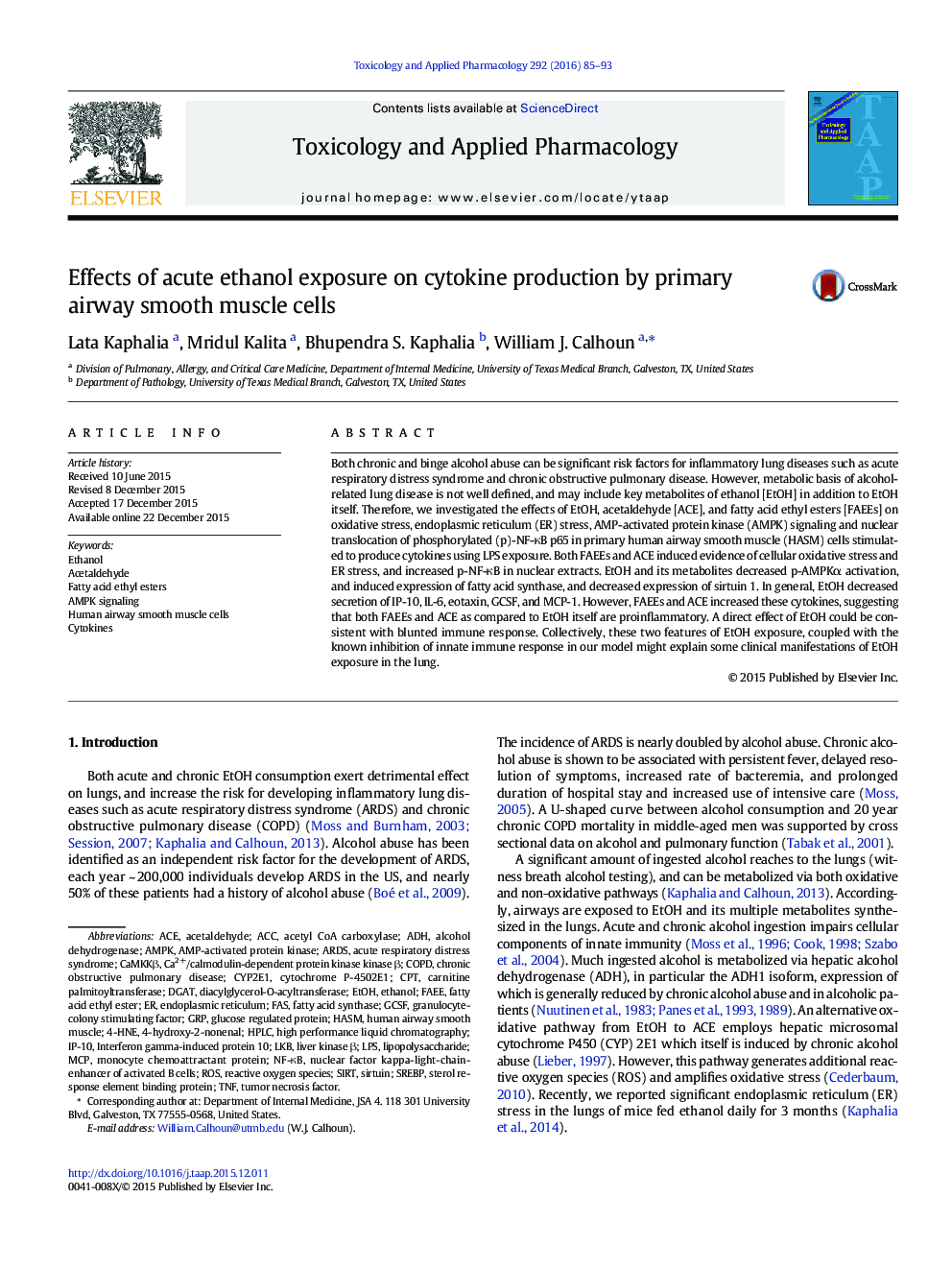| Article ID | Journal | Published Year | Pages | File Type |
|---|---|---|---|---|
| 2568150 | Toxicology and Applied Pharmacology | 2016 | 9 Pages |
•Metabolic basis for EtOH toxicity was studied in human airway smooth muscle (HASM) cells.•In HASM cells, EtOH metabolites were found to be relatively more toxic than EtOH itself.•EtOH metabolites mediate deactivation of AMPK via oxidative stress and ER stress.•EtOH metabolites were found to be more proinflammatory than EtOH itself in HASM cells.
Both chronic and binge alcohol abuse can be significant risk factors for inflammatory lung diseases such as acute respiratory distress syndrome and chronic obstructive pulmonary disease. However, metabolic basis of alcohol-related lung disease is not well defined, and may include key metabolites of ethanol [EtOH] in addition to EtOH itself. Therefore, we investigated the effects of EtOH, acetaldehyde [ACE], and fatty acid ethyl esters [FAEEs] on oxidative stress, endoplasmic reticulum (ER) stress, AMP-activated protein kinase (AMPK) signaling and nuclear translocation of phosphorylated (p)-NF-κB p65 in primary human airway smooth muscle (HASM) cells stimulated to produce cytokines using LPS exposure. Both FAEEs and ACE induced evidence of cellular oxidative stress and ER stress, and increased p-NF-κB in nuclear extracts. EtOH and its metabolites decreased p-AMPKα activation, and induced expression of fatty acid synthase, and decreased expression of sirtuin 1. In general, EtOH decreased secretion of IP-10, IL-6, eotaxin, GCSF, and MCP-1. However, FAEEs and ACE increased these cytokines, suggesting that both FAEEs and ACE as compared to EtOH itself are proinflammatory. A direct effect of EtOH could be consistent with blunted immune response. Collectively, these two features of EtOH exposure, coupled with the known inhibition of innate immune response in our model might explain some clinical manifestations of EtOH exposure in the lung.
Graphical abstractFigure optionsDownload full-size imageDownload high-quality image (145 K)Download as PowerPoint slide
